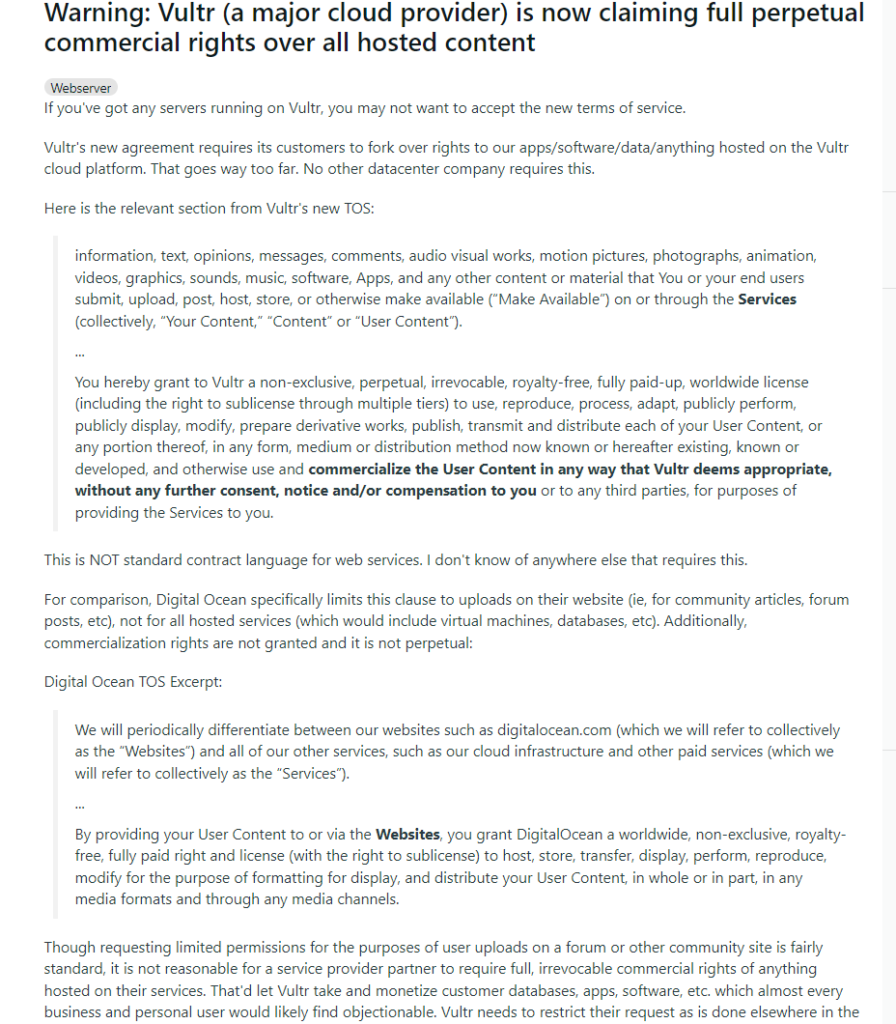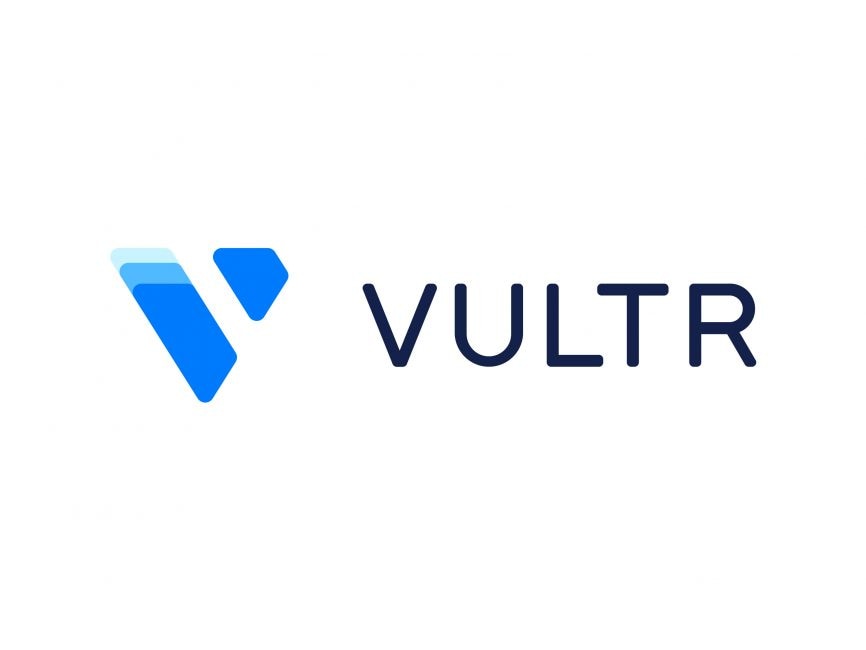Recent changes to the Terms of Service (ToS) of Vultr, a significant cloud service provider, have sparked lively discussion among the Reddit community. Users shared their concerns and interpretations of these changes, focusing on the extended rights the company grants itself regarding content hosted on its platform.
The thread went viral in a very fast time, backed by more than 1.6K users and received more than 400 comments (which is a very high number for industry-related subreddits).

One user commented, “This goes beyond anything I’ve seen before. No hosting company should have the right to full, irrevocable commercial use of everything I host on their servers,” highlighting the uniqueness of Vultr’s provisions compared to industry standards.
Another part of the discussion focused on the potential use of data by Vultr: “It’s possible Vultr wants such broad rights to our data to use in AI/Machine Learning. What do they plan to do with it? Clone our apps?” another user pondered, raising the issue of privacy and intellectual property.
Compared to other providers, the differences are stark: “Comparing this with DigitalOcean or AWS, Vultr goes way too far. We need to demand a change or vote with our wallets,” noted another participant in the discussion, pointing to the more restrictive approach of the competition.
The crux of the matter seems to be that users focused on selective parts of the Terms of Service, leading to confusion about Vultr’s intentions. This selective reading prompted widespread criticism, which, upon closer examination, may have been unwarranted. The company explained that the disputed sections of the ToS referred specifically to public content, such as forum posts, and not to the broad spectrum of user data hosted on their services. This key context was overlooked in the initial outcry, which sheds light on the importance of examining legal documents in their entirety to avoid misinterpretation. A Vultr representative in an interview with us also vehemently denied the possibility of selling user data to any company that would use it to train AI.
Absolutely would not. We have (and never have had) the right to do that. It’s 100% against the core of our mission, DNA, and business model.

Vultr’s CMO also addressed the issue on Linkedin:
I debated whether or not to publicly address this and give it any more oxygen than it deserves. But I do think this is worth sharing. Because it speaks to the centrality of our mission here at Vultr.
Today, we here at Vultr were subject to a false claim on social media that went viral. The claims made had no basis in fact.
As my long-time followers know, I have been a strong advocate for data privacy and protection going back to 2012. My steadfast advocacy for data privacy and protection is outmatched only by our founder, our CEO, our leadership team, and our engineers here at Vultr.
This has been at the heart of Vultr’s mission long before I joined. It’s been the heart of Vultr’s mission since Day One. That is the simple fact that no one social media post will ever change.
I am proud to work at Vultr, and I am proud of the incredible effort we put into supporting data residency, privacy, security, and compliance across our global footprint of 32 data center locations across all six continents. Our customers own their data. We are passionate about our mission. We are passionate about compliance. And we are passionate champions of our customers worldwide.
I’d like to thank O’Ryan Johnson at CRN for setting the record straight regarding the erroneous claims regarding Vultr’s Terms of Service. This is a prime example of why facts matter – and showcases the importance of not taking every social post at face value without doing one’s due diligence.The incident underscores how important it is for companies like Vultr to respond quickly and effectively to criticism emerging on platforms like Reddit. In the age of social media, information spreads rapidly, and public opinion can take a dramatic turn almost overnight. The Vultr case is another example of how easily and unexpectedly a company can receive a significant blow to its reputation, often triggered by misunderstandings or incomplete information. Moreover, the incident highlights how limited defenses are in such situations. Before you have time to react, the damage has already been done.
The terms and conditions themselves had been available in their new form for several months, and sparked outrage when users were forced to accept them in the management dashboard.
Lukasz Gawior
With nearly 20 years in the hosting industry, an expert in building and scaling hosting products. Founder of multiple hosting companies, involved in M&A projects and in creating software tailored to the needs of hosting providers.
